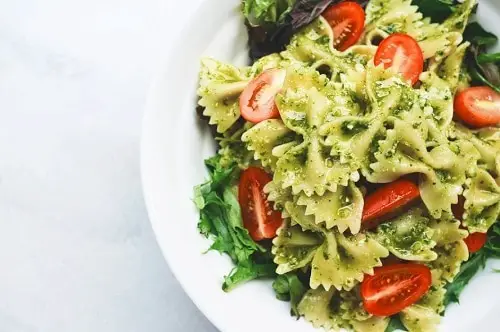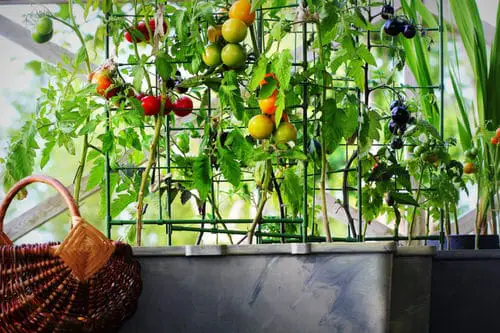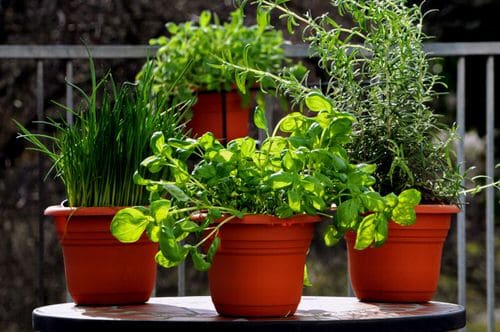Want to grow organic ingredients for this famous Italian cuisine? Learn how to Create a Pasta Garden on Your Small Balcony with ease!

Want to Create a Pasta Garden on Your Small Balcony? Here’s everything you need to know and more for a fresh supply all-year-round!
Check out our article on growing an indoor pizza garden here
Creating a Pasta Garden in Your Small Balcony
The taste of pasta sauce, soup, or salad made up of fresh veggies from your own garden is just incomparable! You can create your own little garden easily on a sunny patio or a small balcony in large containers or hanging baskets filled with rich, well-draining potting mix.
1. Vegetables

Start the pasta garden during spring. Tomatoes are the staple ingredient for making pasta sauce. Grow plum, Roma, or San Marzano for a bright-colored sauce enriched with great taste. We have a great article on growing tomatoes in hanging baskets here.
If you live in a warm climate, you can easily grow red, green, or yellow bell peppers. For colder regions, plant them when the frost passes for all summer long harvest. Here’s everything about growing bell peppers in pots.
The next ingredients are onions and garlic that you can have in your pasta garden. According to growing conditions and climate, you can also plant carrots and broccoli.
2. Herbs

Also, grow basil, parsley, thyme, marjoram, and oregano in hanging baskets. Without these herbs, the flavor of your pasta will be incomplete! Here are the best Italian herbs you can grow on a sunny balcony.
Design Pasta Garden According to the Available Space and Light

Grow vegetables according to the available space. The size of the container depends on the variety of vegetables. You can easily grow herbs in window boxes or hanging baskets on your balcony.
Vegetables like tomatoes and bell peppers need 3-5 hours of daily sunlight for optimum growth. Place the pots where they receive enough sunlight.
Pasta Garden Care

It requires efforts to make veggies delectable and herbs more aromatic. Use a good quality potting mix and feed the plants once a month with organic fertilizer, as watering spells wash away the nutrients present in the soil.


